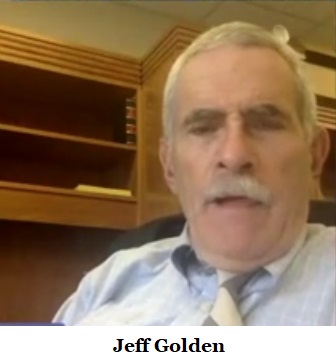The future of carbon credits in question
Oregon land is about 25 percent National Forests at 16 million acres. Add to that about 7.3 million acres of private timber land. These carbon-sequestering forests purify the air, filter water, prevent soil erosion, and act as an important buffer. That is nearly 50 percent of Oregon with a mixed variety of forests, making the state a large carbon sink.
According to Pete Stewart, CEO of ResourceWise, his research led him to “
6 Predictions for 2023 Global Forest Industry,†he states, “we can likely expect the beginning of the end for carbon credits this year. Many critics often question the legitimacy of carbon credits altogether, wondering if companies merely use them as a veneer to conceal their ongoing pollution.†Forest2Market also predicts that 2023 will bring an end to carbon credits in general. “The world is coming around to the fact that carbon credits, of any kind, are just a license to pollute more.†In regards to forests, their research shows that “carbon is stored longer in the finished product, especially lumber and cross-laminated timber.â€
Despite the national trend, Senator Jeff Golden (D-Ashland) chaired the 2021-2022 Senate Interim Committee on Natural Resources and Wildfire Recovery that introduced
SB 88 to establish a state policy to increase net carbon sequestration and storage in natural and working lands. The bill requires certain agencies to monitor progress advancing state net carbon sequestration and storage policy and report their findings to the Oregon Global Warming Commission.
SB 88 directs Oregon Global Warming Commission with related agencies to develop natural and working lands net carbon sequestration and storage inventory using cap and trade methods for assessing greenhouse gas fluxes. Everything you do is now being measured to reduce carbon emissions and if reduction isn’t possible, then in increasing carbon storage.
A D V E R T I S E M E N T

A D V E R T I S E M E N T
Companies will proudly announce their corporate aim toward reaching net zero for the benefit of clients, known as ‘greenwashing.’ Rather than reducing a company’s actual emissions, they buy credits from conserved forest land. However, Stewart’s study indicates companies have little intentions of actively reducing their carbon footprint. Instead, the push seems to be toward hitting those ‘net zero’ carbon emissions by purchasing offsets and passing the cost to consumers.
An investigation by The Guardian showed that up to 90% of the credits offered by one of the leaders in setting carbon standards were simply ‘phantom credits.’ There is no tangible substance and were not helping to offset carbon pollution beyond the numbers on a spreadsheet. That leaves the question of the purpose of carbon credits.
There needs to be a more accurate measurement for pollutants, better identification on how carbon is stored in wood beyond the forests, and improve measurements and reporting mechanisms, according to Stewart. A step in that direction may be in
SB 724, introduced by Senator Fred Girod (R-Stayton). SB 724 adds to the calculation of greenhouse gas levels to include atmospheric carbon sequestered by lands and waters in determining progress towards greenhouse gas emissions reduction goals.
No matter how you look at it, Oregon's sink is draining more than carbon.
--Donna Bleiler| Post Date: 2023-02-03 12:07:32 | Last Update: 2023-02-03 16:17:18 |







